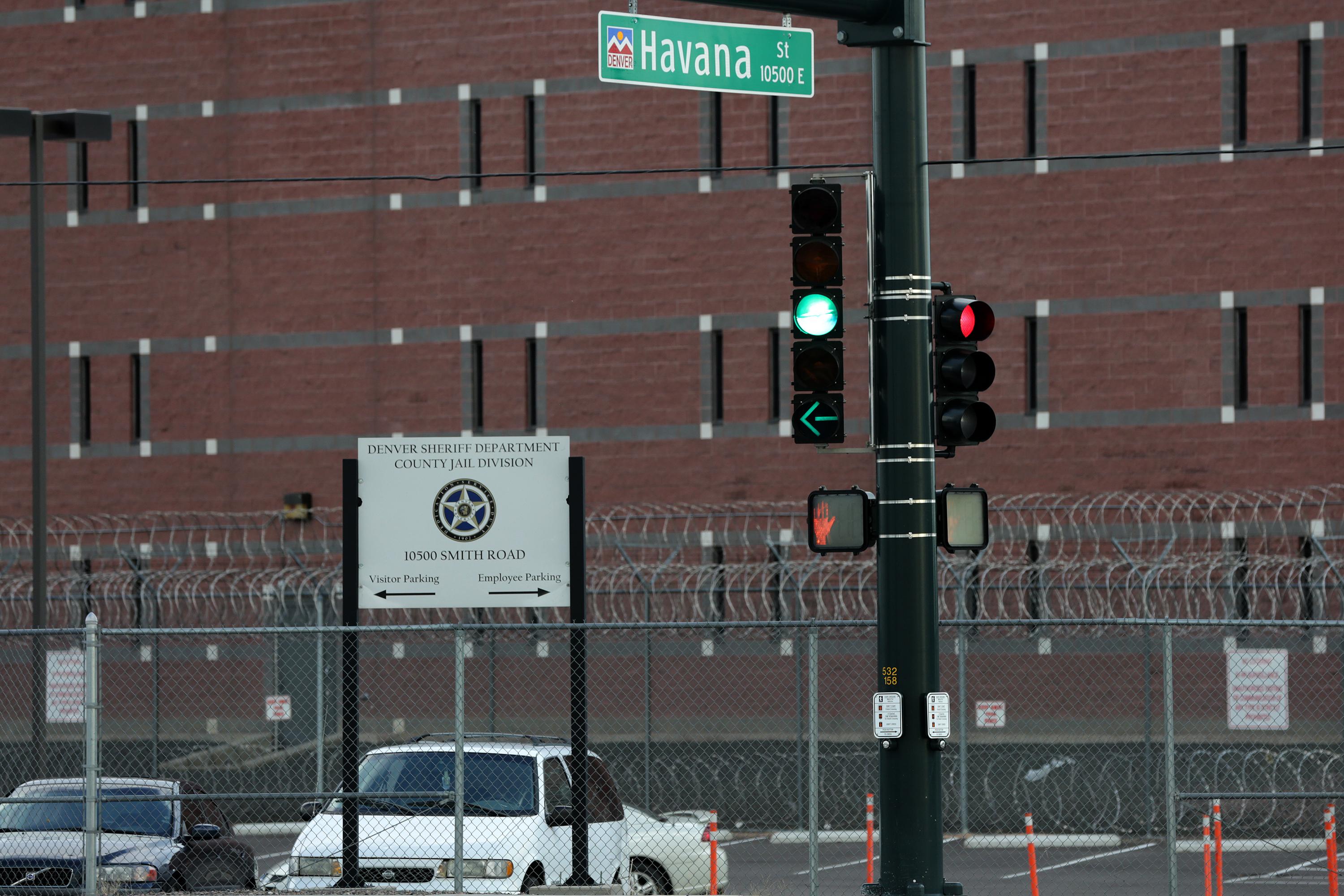

Almost 300 mentally ill people across the state have been in jail for months — before being convicted of anything — because state officials say there is not enough room at the mental health hospital to treat them before they stand trial.
Some of those people, many of whom face low-level charges like trespassing, have been in a county jail cell for more than 100 days. At least one man has been there more than 200 days.
The lengthy wait times are in violation of a 2016 federal court order. The state agreed then to get people mentally restored to stand trial within 28 days of a competency evaluation.
But by December of 2017, the state was out of compliance with that agreement and court documents show the number of people sitting in jail for months awaiting competency restoration has spiked — from three in June 2017 to 281 in July 2018.
| Date | Detainees On Wait List | Avg. Wait In Days | Longest Wait |
|---|---|---|---|
| June 2017 | 3 | 23.93 | 29 |
| July 2017 | 36 | 28.12 | 45 |
| Aug. 2017 | 87 | 37.35 | 56 |
| Sept. 2017 | 104 | 47.26 | 68 |
| Oct. 2017 | 120 | 58.17 | 88 |
| Nov. 2017 | 145 | 66.46 | 87 |
| Dec. 2017 | 170 | 67.14 | 129 |
| Jan. 2018 | 177 | 72.84 | 129 |
| Feb. 2018 | 194 | 74.51 | 114 |
| Mar. 2018 | 221 | 90.24 | 133 |
| April 2018 | 324 | 87.34 | 136 |
| May 2018 | 217 | 96.56 | 144 |
| June 2018 | 211 | 95.53 | 144 |
| July 2018 | 281 | 80.62 | 149 |
Department of Human Services officials wouldn’t grant interviews for this story because of the pending lawsuit in federal court, but Office of Behavioral Health Chief Robert Werthwein sent a statement over email.
“The Department continues to work to solve the challenges posed by having more people to treat than capacity to do so within the time frames specified by the court,” Werthwein wrote. “The Department would prefer to serve individuals in the setting most appropriate to their level of clinical need. Absent this ability, we will continue to work on expanding capacity to serve all individuals court-ordered to us, regardless of clinical need.”
The wait times for treatment are also growing — from 29 days on average last summer to 150 days now.
“What they’re doing is irreparable harm to individuals,” said Iris Eytan, a lawyer representing Disability Law Colorado, which has sued the state four times in the last ten years for this problem. “And that’s unfair and that’s a violation of the Constitution.”
One severely psychotic man named Adam has been sitting in the Denver County Jail awaiting competency restoration since February. He is charged with spitting on a peace officer.
“The worst of it is, as a family, we don’t have any line of communication with any authorities or any advocates who can say, Adam is doing well or not doing well,” said Adam’s mother, Sandy. Colorado Public Radio is protecting the family’s last name because of Adam’s illness. “We have no idea how he is doing. To me, it’s very very sad. He’s so mentally ill, how can they continue to hold him?”

Judges across the state are increasingly siding with the advocates.
In a five-week span between July and August, judges either threatened to hold officials at the Colorado Department of Human Services in contempt of court, or held them in contempt, 22 times on behalf of individuals sitting in jail for months without treatment.
That is a dramatic increase in contempt, or threats of contempt, citations from the previous year: prior to July, state officials faced 59 threats or orders from judges in the last 12 months.
When a judge threatens contempt, state officials have a limited period of time to move someone from jail to a hospital bed or treatment center. If they don’t follow the judge’s timeframe, they are held in contempt of court.
Usually, the state complies with these contempt threats — but the one-off handling of individuals is angering mental health advocates.
“They’re playing whack-a-mole, that’s what they’re doing,” Doug Wilson, the state’s former lead public defender, who is now advocating on behalf of the mentally ill.
Adam went to court in July. His public defender tried to get him forcibly moved to the state hospital then, but state judge Kenneth Laff didn’t grant an immediate order to get him out of jail — despite Adam begging him in court to let him plead guilty so he could get out on time served or let him go to the hospital.
At that time, he had been in jail for more than four months.
“I don’t think my cases are necessarily more important than those of the other judges who are waiting,” Judge Laff said, according to court transcripts. “I don’t think, you know, 10 orders a day from every district in the state is going to solve anything.”
When someone is arrested and charged with a crime, that person’s lawyer or a public defender always gauges whether the person is mentally fit to understand the nature of their charges and aid in their own defense. When competency to proceed is raised by counsel, the court orders the evaluation and the state assumes responsibility for it.
State officials said they perform, on average, 168 competency evaluations a month. Of those, roughly half are usually found incompetent to proceed.
This is where people are getting stuck in jail. Many times, judges don’t even set bonds for these people — or prosecutors argue against bond for inmates amid competency proceedings.
“Jail is not the answer for people with mental health issues. But I have a responsibility to keep the community safe. So we balance all that,” said Beth McCann, Denver’s district attorney. “When is someone safe to be in the community and get their restoration services versus being in custody because they may cause further harm to people?”
McCann said she doesn’t like the number of people sitting in jail awaiting competency restoration, but she is still trying to decide what to do about it. She noted she has considered going line by line through the jail population to see whether charges could be dropped against mentally ill people whose wait for restoration services stretches longer than the time they would have served for pleading guilty.

Adam’s family actually just wants to see him hospitalized — and treated.
The 37-year-old was a successful college graduate with a good job in marketing before his mental illness took hold. He stayed with family in Michigan and Colorado and was on medication that seemed to help, but his parents said he eventually stopped taking it because he said it made him tired.
Adam spiraled over the course of several years. He often wandered and his parents didn’t know where he was.
About a year ago, he was staying with his father, a drywaller named Mark who lives out by Denver International Airport. Mark came home one evening and the house was a huge mess and several things were broken. Mark didn’t know what to do, so he called the police and asked them to help get his son some medical assistance.
“I thought, this kid needs some freaking help,” Mark said.
They instead arrested Adam and took him to jail. A judge eventually put him on probation, but his dad said he couldn’t handle the court ordered treatment — he was too sick to remember all of the obligations and he missed some appointments.
This sparked an automatic arrest warrant. Adam was wandering near Grand Junction in February and was picked up by police and transported to Denver. He’s been in jail ever since — almost 200 days.
“Seasons have come, seasons have gone,” said his mother, Sandy, who lives in Michigan. “He’s losing his life in this place.”









